President-elect Donald Trump and the US Supreme Court. One incident that caught the public’s attention occurred on Tuesday when Trump made a phone call to Supreme Court Justice Samuel Alito. This call came just hours before Trump’s attorneys filed a petition to the Supreme Court, asking them to delay his criminal sentencing, which was scheduled to take place in a New York state court later that week.
Alito’s Explanation Raises Questions
Justice Alito insisted that the call was entirely innocent. According to Alito, William Levi, one of his former law clerks, requested that he take the call from President-elect Trump. The call, Alito explained, was about Levi’s qualifications for a potential government position. Levi, a former assistant to Attorney General Bill Barr during Trump’s first term, was being considered for the role of general counsel for Trump’s Department of Defense.
This explanation, however, raises some questions. Why would a former law clerk, who had already worked in the Trump administration, need such a personal call from the president-elect, especially when he was being considered for a role that doesn’t require Trump’s direct involvement? It seems strange that a conversation about Levi’s qualifications would occur just hours before a critical legal decision regarding Trump’s criminal case.
A Deeper Connection Between Alito and Trump
While Justice Alito’s explanation may seem plausible on the surface, there is more to the story. Alito has long been known for his staunch support of Trump. In fact, he was part of the Supreme Court majority that decided to dismiss many of the federal criminal cases against Trump. Furthermore, Alito has publicly shown support for Trump’s agenda, including actions that align with the interests of the Republican Party.
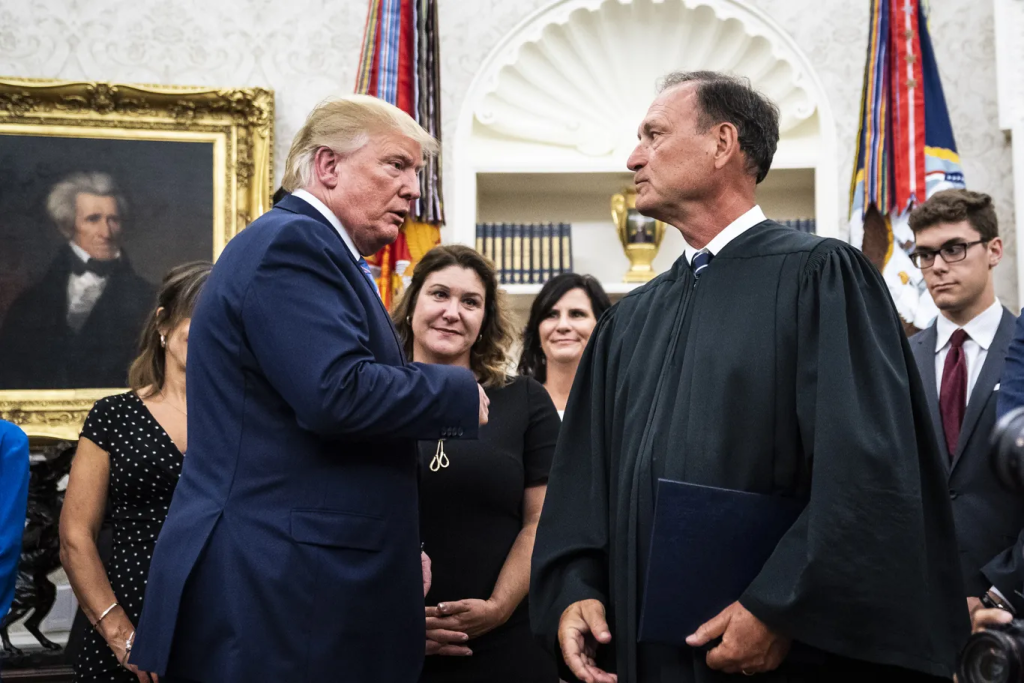
In addition, Alito has expressed a view that the president, particularly a Republican president like Trump, should have broad powers and should be above the law. This view has raised concerns about the impartiality of the Supreme Court under his influence. If we look at his actions in the past, including his involvement with Trump’s legal issues, it becomes evident that Alito is not an unbiased figure in cases involving Trump.
The Ethics Problem
What’s even more troubling is Alito’s disregard for the appearance of impropriety. Justices are supposed to avoid situations that could give the impression of bias or unethical behavior. The phone call between Alito and Trump, in the context of the criminal sentencing case, raises serious ethical questions. Alito’s relationship with Trump and the timing of this call makes it difficult to believe that there were no ulterior motives behind it.
Alito is not the only Supreme Court justice facing scrutiny for unethical behavior. Justice Clarence Thomas has been widely criticized for accepting lavish gifts from billionaire donors whose interests he later ruled on. Alito himself has also been involved in scandals, including accepting a luxury vacation to Alaska on a private jet owned by a billionaire. This trip, which was not disclosed in his annual financial reports, further illustrates his disregard for ethical guidelines.
A Lack of Accountability
The troubling pattern of behavior by justices like Alito and Thomas suggests that the Supreme Court is becoming increasingly immune to accountability. Justices do not just disregard ethical rules—they openly flaunt them.
When legal experts called for Alito to recuse himself from the case concerning Trump’s sentencing, it became clear that such calls were unlikely to be heeded. The Supreme Court has shown time and again that it does not feel bound by the same ethical rules that apply to lower courts.
Even when the court attempted to implement an ethics code in 2023, it faced strong opposition from several justices. The resulting ethics statement was weak and lacked enforcement mechanisms, meaning it essentially had no real impact. This highlights the deeper issue within the Supreme Court: the justices are not following clear rules and principles; instead, they are operating based on power and influence.
The Trumpist Style of Power
The recent developments surrounding Alito’s phone call with Trump represent a larger shift in the way the Supreme Court is operating. It seems that the Court is adopting a style of power that mirrors Trump’s approach to governance.
This approach is characterized by an open disdain for ethical standards and a belief that the rules do not apply to those in positions of power. For both Trump and Alito, the goal is not to justify their actions but to assert their dominance and show that they can act with impunity.
This new style of power threatens the integrity of the judicial system and raises serious questions about the future of the Supreme Court. If justices like Alito continue to act without regard for ethical standards, it could have a lasting impact on public trust in the judiciary.
Conclusion
The phone call between Justice Alito and President-elect Trump is just one example of a troubling trend in the US Supreme Court. With justices like Alito openly flouting ethical rules and aligning themselves with Trump’s controversial agenda, the integrity of the Court is at risk.
As long as the justices remain immune to accountability and continue to operate based on power rather than principle, the credibility of the entire judicial system will be called into question.
Disclaimer: This article has been meticulously fact-checked by our team to ensure accuracy and uphold transparency. We strive to deliver trustworthy and dependable content to our readers.

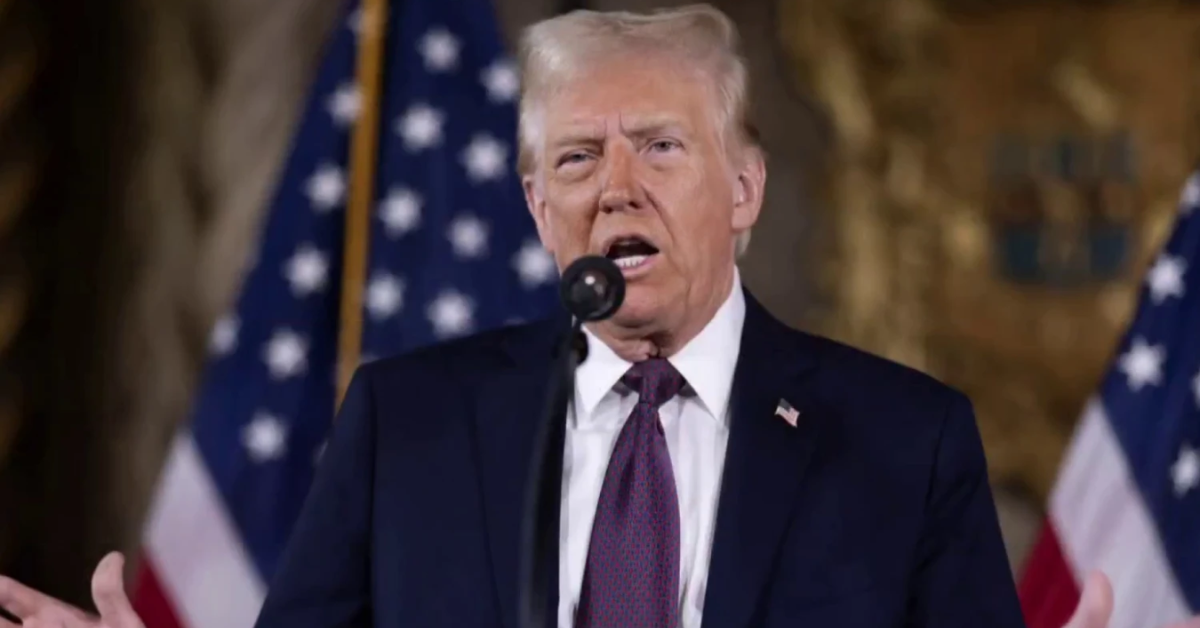
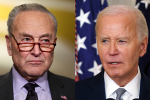
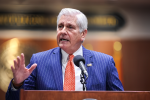

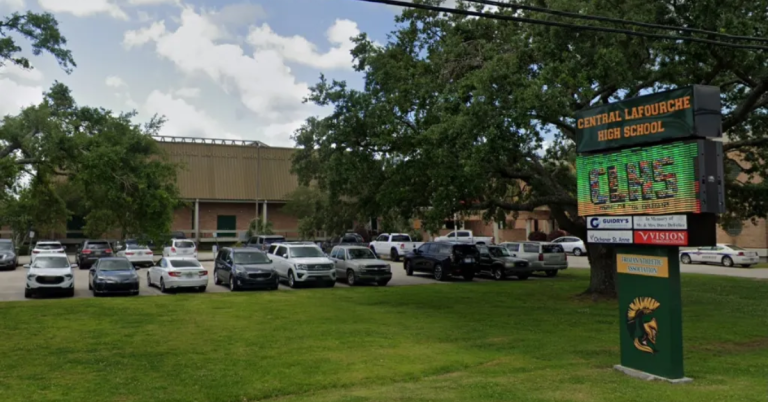
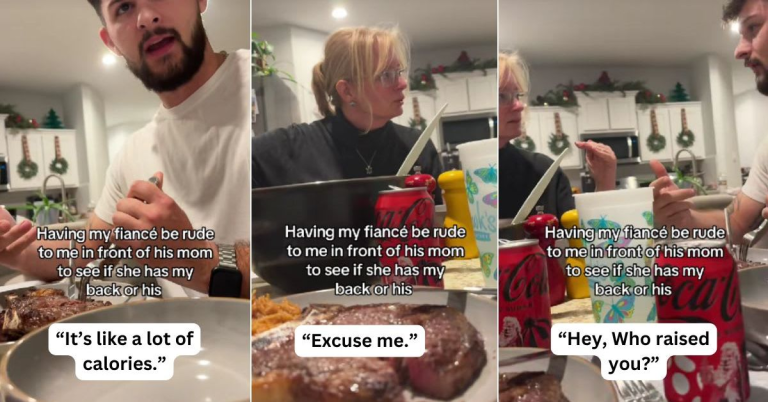
Leave a Comment